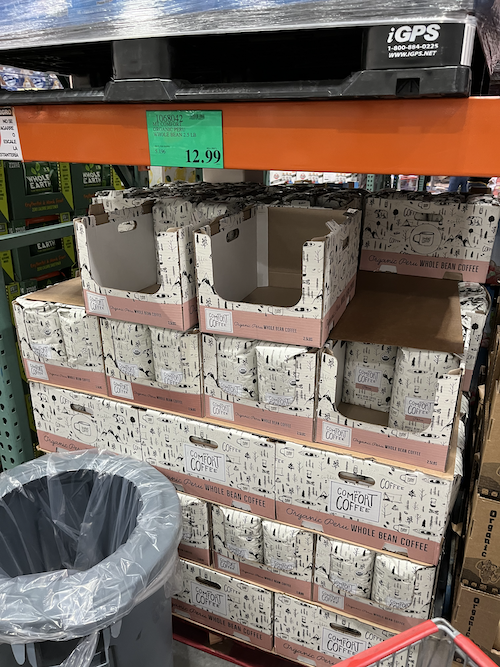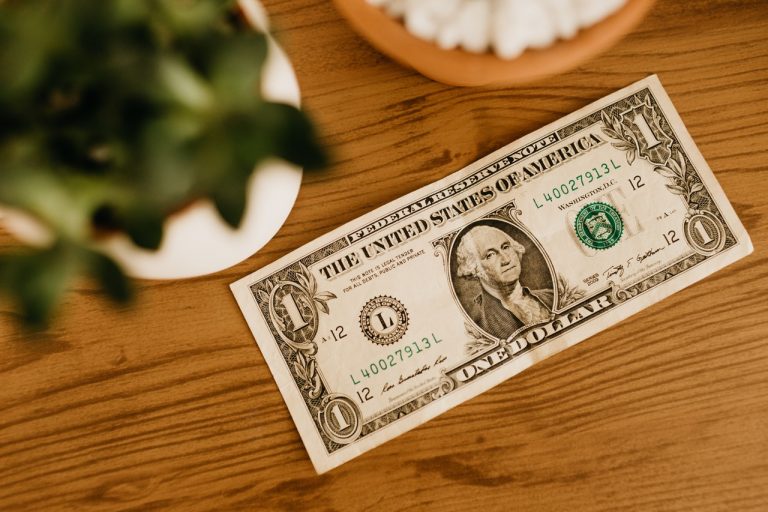I’ve done a post about how to save money on coffee and why you should try. But for this post, I wanted to publish my notes and thoughts on the cost trade off coffee beans. Over the last couple years, I’ve swung wildly between saving money at all cost and buying the best regardless of cost. This post is exclusively focused on looking at the cost of coffee beans at a few different places and discussing the practical implications of optimizing for the cost of coffee beans. Let’s begin.
Coffee Beans Are Cheap. Coffee Isn’t.
If I went to Starbucks right now and ordered an 8oz cup of drip coffee, I’d be looking at $2.35 ignoring tax. Personally, I don’t care for Starbucks coffee. And it’s not because of price, it’s because of taste. But I will spare you of the beef I have with Charbucks. For the purposes of our discussion, I wanted to set the anchor at the commodity cost of coffee out. The annual cost for a cup a day of Starbucks coffee comes out to be $857.75 pretax.
Introducing the Contenders

I could go wild here with the options, but I won’t. I have only listed actual places and options of coffee that I’ve purchased in the last year.
Now, as you can see, my absolute favorite, locally roasted coffee beans bought in the traditional size bag from a grocery store shelf comes out about 29% of the cost of getting my cup from Starbucks. So the top shelf, fresh, small portion, locally roasted coffee is 1/3th the cost of getting it from Starbucks. And if you’re really feeling froggy, you can start to look at some of the Costco options that take you to about 1/9th or 1/12th of the cost of that cup of Starbucks coffee.
A Quick Note on the Math
The coffee process I use is the pour over method using Hario V60 02 filter. I use a 2 tbls scoop which gets about 17g of coffee beans per scoop. According to the recommended 1:15 ratio of coffee to water by weight, this should yield roughly an 8oz cup.
But the analysis really isn’t this simple. There are various factors that aren’t or can’t be quantified quite as easily in the table above. First, all options except the Starbucks require a sacrifice in convenience.
Factoring in Convenience
The data here is interesting and there are plenty of takeaways. First, I’d say it’s worth thinking about that even if you lazily go to the grocery store and grab the priciest bag of coffee off the shelf, you’re still saving about 70% on that cup of coffee. I was most surprised by how much of a premium you pay for what I would argue is a poorer cup.
So, we are asked to pay 3x the cost of the coffee beans to have someone make our cup for us. The convenience premium here seems quite high. But, it’s true that a good cup might require you to spend some money on equipment, which would make your coffee-from-home decision more expensive in the short run. I have done some break even analysis in a different post on coffee from home setups.
That all being said, it’s fair to say the convenience of the non Starbucks options are all very similar except for bulk local roaster and Costco. Both of which require a visit outside of your every day grocery store. Personally, saving $0.14 a cup on local roaster vs bulk local roaster isn’t worth the squeeze of a visit outside a traditional grocery store. But going from $0.69 a cup to $0.19 a cup is more interesting. That has my attention.
Convenience is a major factor here. It primarily explains the 3x increase in cost from going fancy small batch at home to your every day cup of Charbucks. But convenience isn’t the end of the story. We must also factor in shelf life.
Factoring in Shelf Life
A critical consideration when assessing the data here is shelf life. If we were assessing something like the cost of rice or beans which are much less sensitive to time, then we could remove shelf life from the equation because whether it takes you a week or 10 weeks to consume the product, the quality and taste is indistinguishable.
The opinions vary, but I think most would agree that a fair shelf life for coffee is about 3 weeks after the roast date.
In our home, we have 2 coffee drinkers. So a small bag of locally roasted beans will cost us $14 and last about 10 days (20 cups of 8oz coffee / 2 people each day). This is close to optimal. This means, if I purchase a bag that was roasted a week ago (About the freshest I can find), then by the time I’m making that last cup, it will have been roasted about 17 days ago.
That’s the important thing to remember here. Most people will not have access to beans the day they’re roasted. And I’ve struggled to find beans on a grocery store shelf that are roasted less than a week ago. Personally, I think shelf life is a critical factor here. I’ll admit, for most it isn’t. But for me, it is.
That leaves about 2 weeks for consumption under optimal conditions.
This is my primary issue with Costco coffee beans. The Costco sized bag is 68 cups of 8oz coffee. That’s 34 days, 5 weeks to get through it from purchase date. Even if the beans were roasted the day we bought them, we’d only be 60% through the bag before the quality started to deteriorate.
How the Data Will Shape My Purchasing Decisions
The reason I wrote this post is because my wife and I still have discussions around this issue. She is more sensitive to the initial outlay of cost – thinks we are crazy for spending $30 on a big bag of small batch coffee when we could spend $15 on the same amount from Costco.
I have found bulk grocery store beans from Whole Foods or Sprouts to be very hit and miss with knowing the roast date. For example, my local Whole Foods provides the “Fill Date” but not the roast date. I often go into the store and find the “Fill Date” to be a week or two ago. That would mean the day I buy the beans could have been roasted 3 weeks ago. That’s unacceptable to me.
If we had more coffee drinking members of our home, I think the Costco bag would be without question the best option. The other pro for Costco sized bag is if you have a sudden spike in consumption by say hosting guests or what not, it covers you and doesn’t bury you in extra, small batch high cost per cup consumption.
But that’s the rub. I understand the argument – “Why not buy the Costco bag for the same price as the small batch bag and just throw away what you don’t use after 2 weeks of consumption?” The problem with that is we don’t go to Costco 2x a month and frankly don’t want to. Costco is a 20 minute drive, but our nearest Whole Foods that sells this small batch coffee is 2 minutes away.
My Decision From This Analysis

Assuming Costco continues to regularly carry Mt Comfort Coffee, we will go back to purchasing our coffee from Costco. Coffee is one of those things I’d prefer to just have on hand. We’ve been doing the small bag of locally roasted for the last couple months and it’s required me to make multiple trips to the grocery store just to get coffee. For me, the convenience of having it on hand outweighs the occasional push of shelf life. We have two stainless steel air tight food storage containers that really help stretch the shelf life of the coffee.
Also, our locally roasted bags start at $14 a bag. Most of them are between $15 and $17 a bag.
Honestly, I just don’t think you can argue with the savings. You get 2.5 lbs of organic coffee from a reputable brand sold on shelves of fancy grocery stores for the same price as 12 oz of local roasted beans.
So that’s what we are going back to doing. Costco it is.
A Call To Comment
What do you think? What variables am I missing or didn’t properly take into consideration? How do you go about making this decision?


This analysis is perfect if you consider all of these coffees to be the same on taste and quality. I think you rightly chastise Charbucks, but I personally find a quality gap between local roaster and big chain grocery beans as well. This gap pushes me to the local roaster large bag option. Of course this is difficult to quantify!
As you rightly show, the biggest impact is the decision to make it yourself. The margins on the other choices are much smaller by comparison.
Another variable I have been considering personally is the price paid to the local farmers around the world. I’m no expert here, but I do know that large buyers can exert immense price pressure on small growers, driving down the profits that farmers make for growing the beans. When local roasters are up front about their relationship and treatment of the farmers who grow their beans, that is valuable to me.
Jacob,
Very right you are and thank you for your comment!
I personally would love to know more about the origin and relationships across the supply chain from farmer to the store shelf. This information is probably not so surprisingly difficult to come across and requires more work to uncover. But this is a fair challenge and should be another factor in consideration.
In my home city, we have a couple local roasters that I’m aware of. One that distributes globally.
Another thing I’ve considered is roasting my own coffee beans. There are other FI bloggers out there who swear by it as a hobby. I would be curious of the savings/time tradeoffs there.